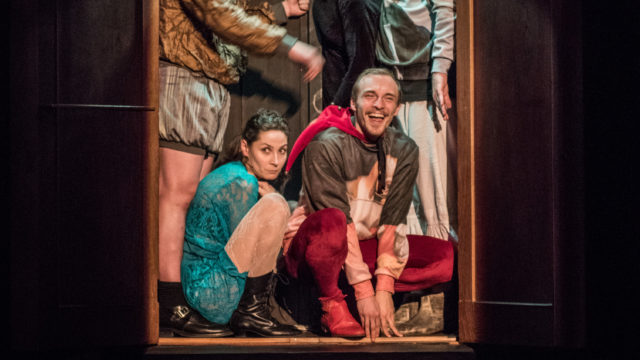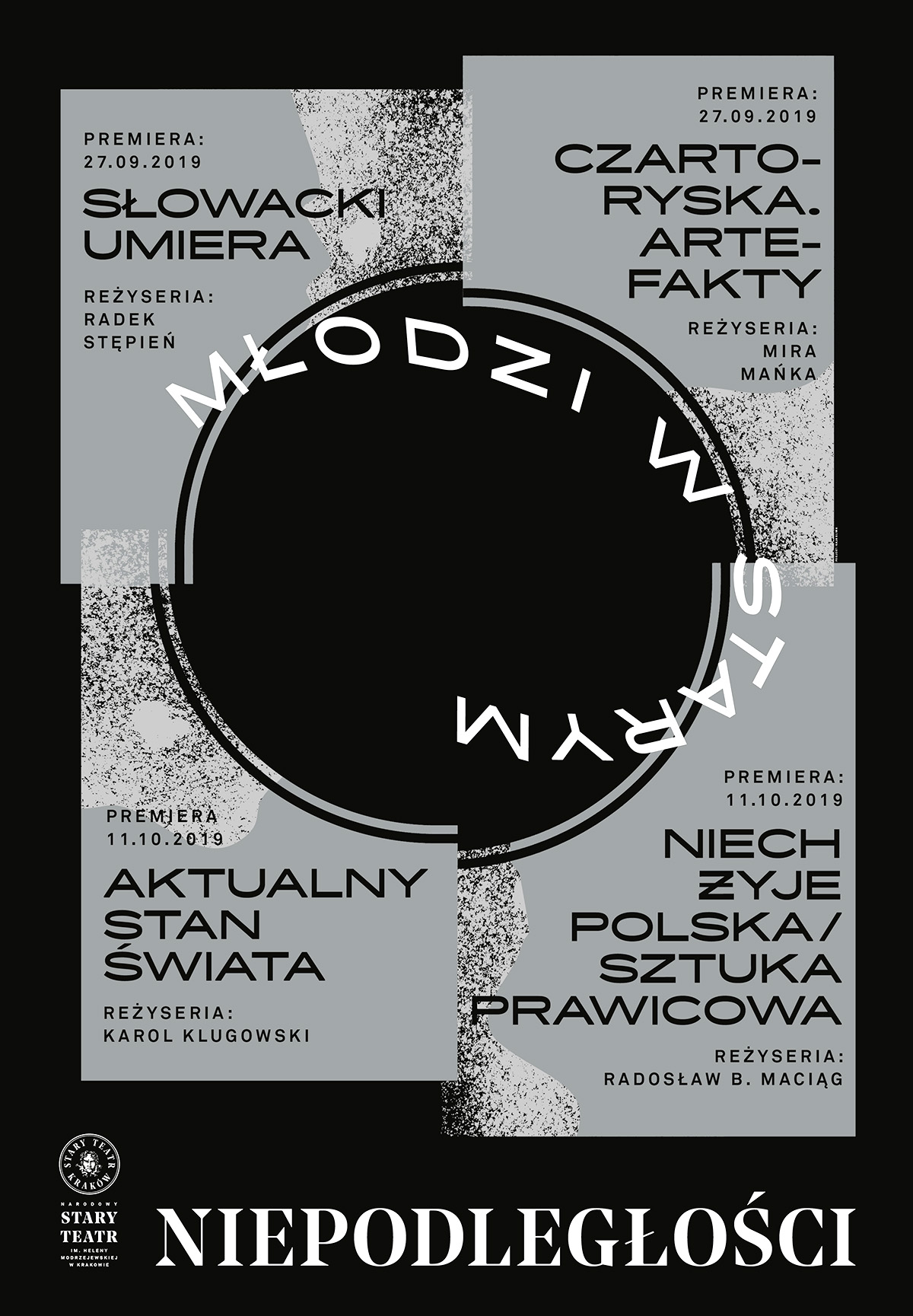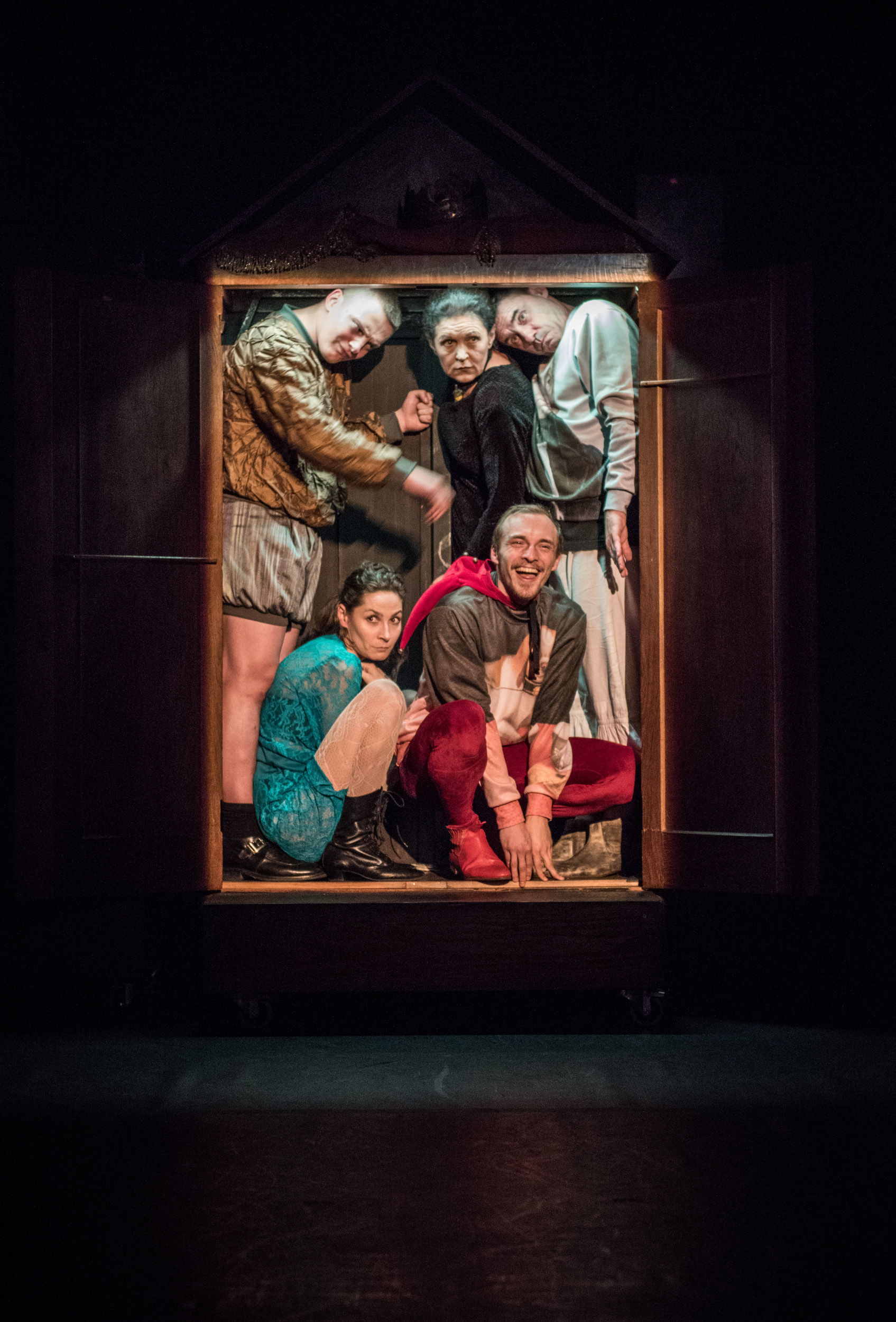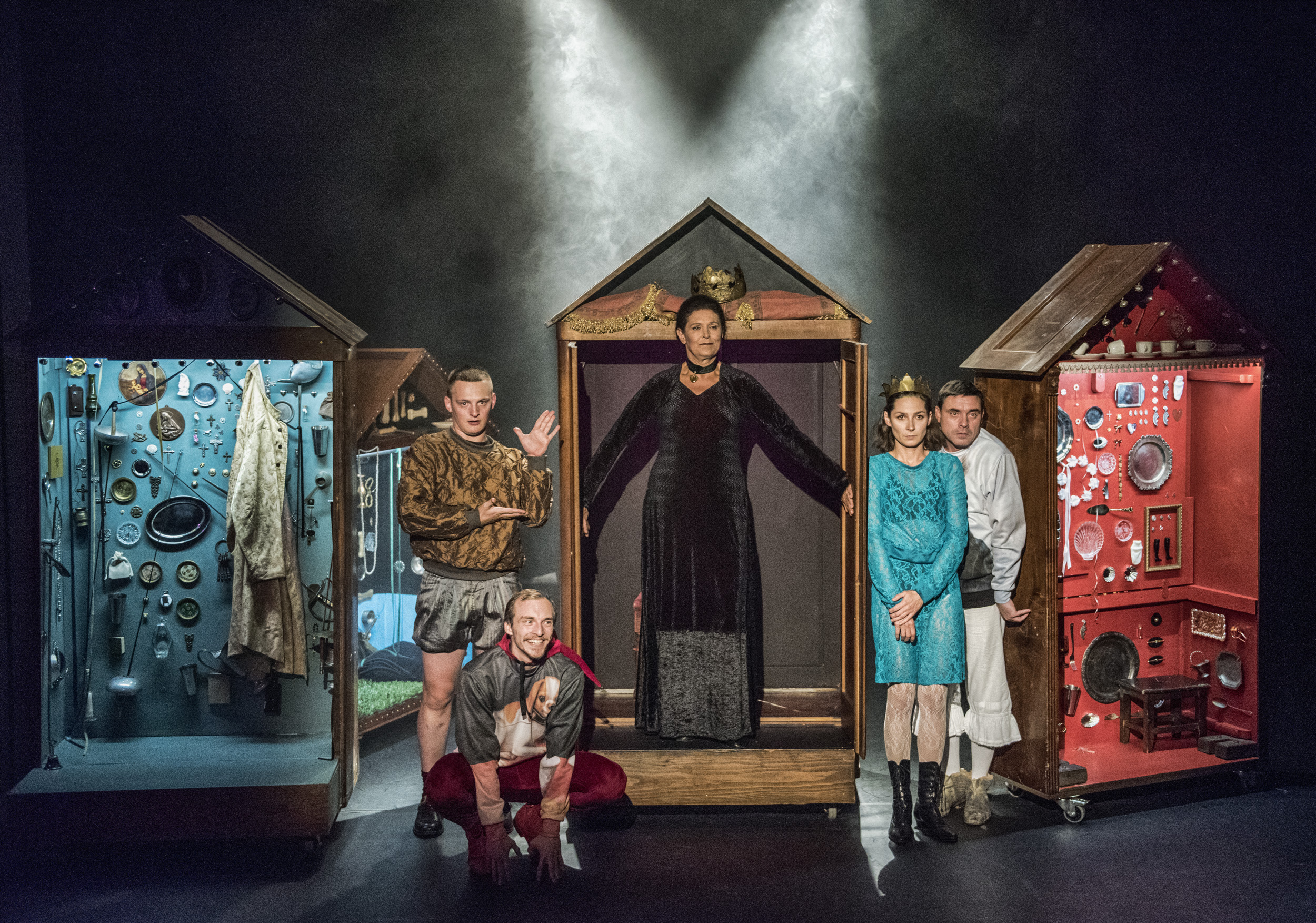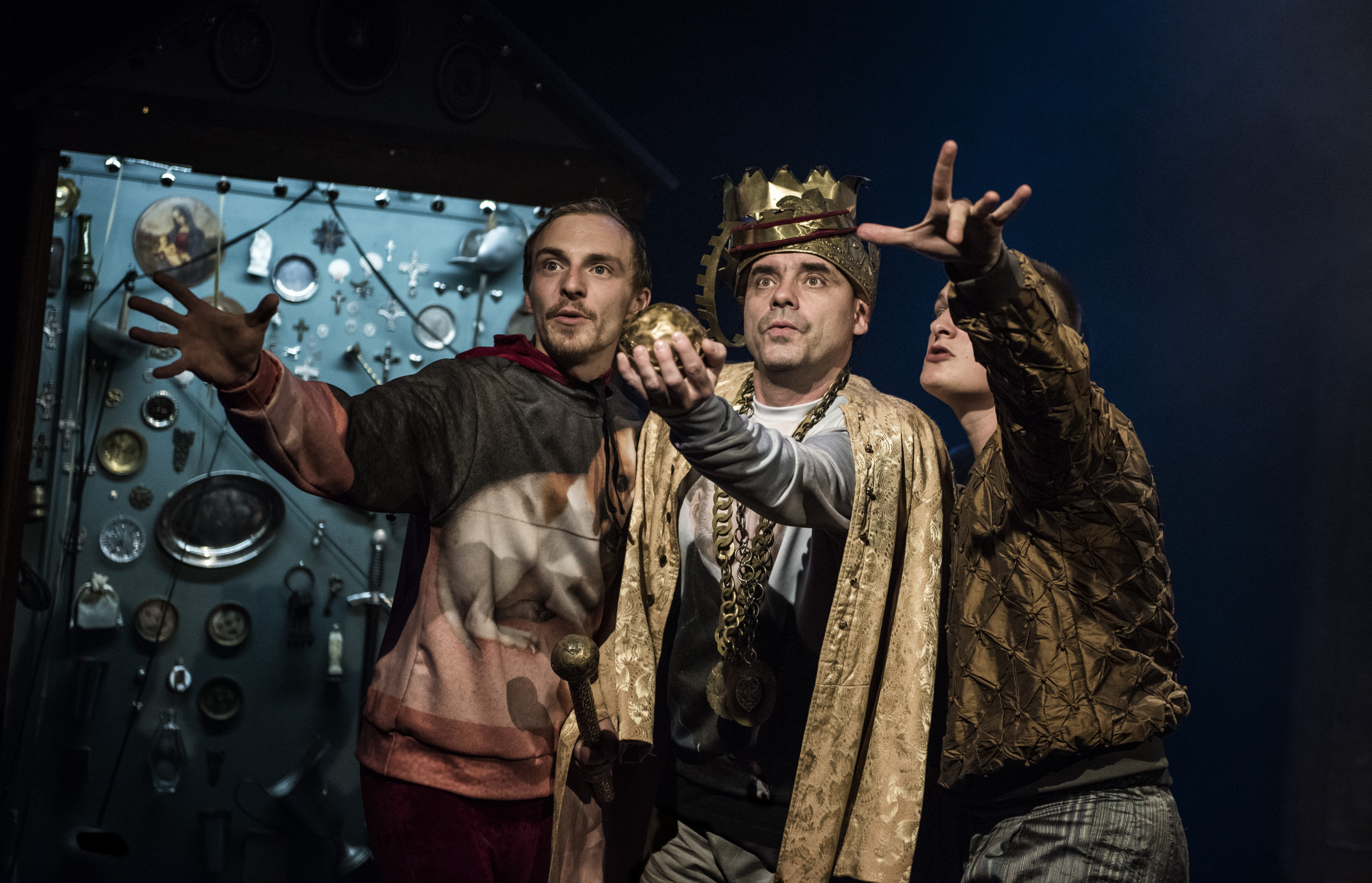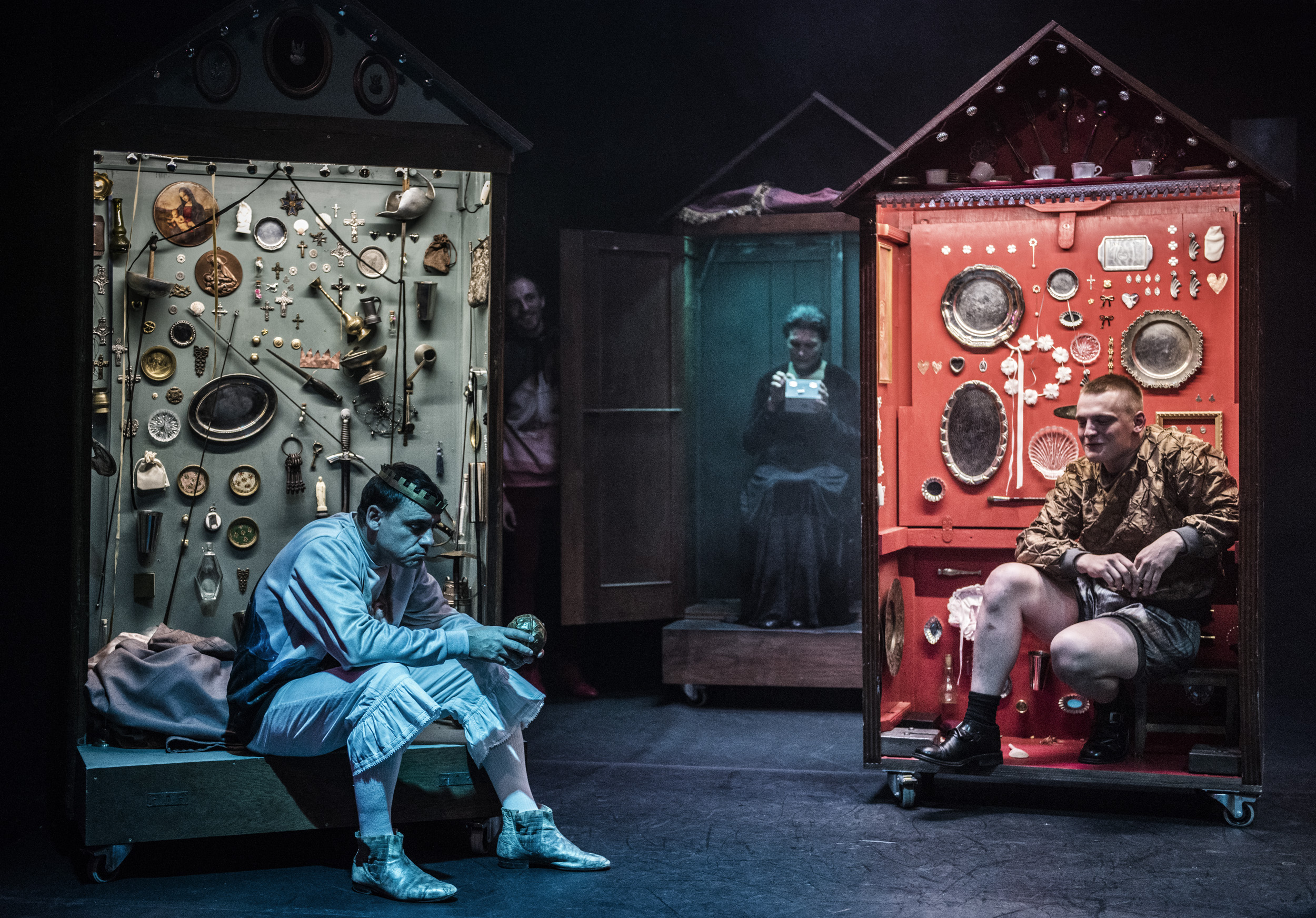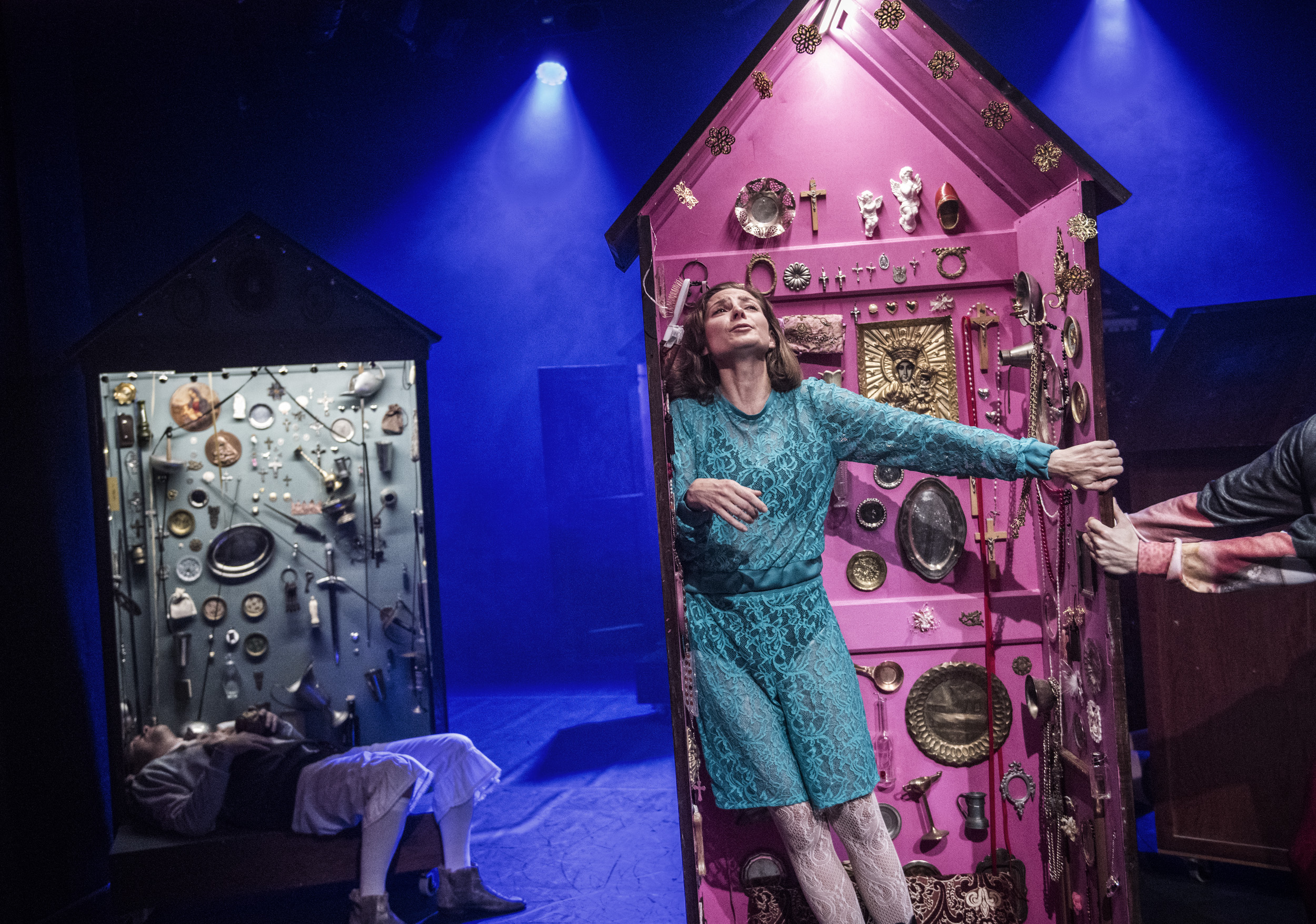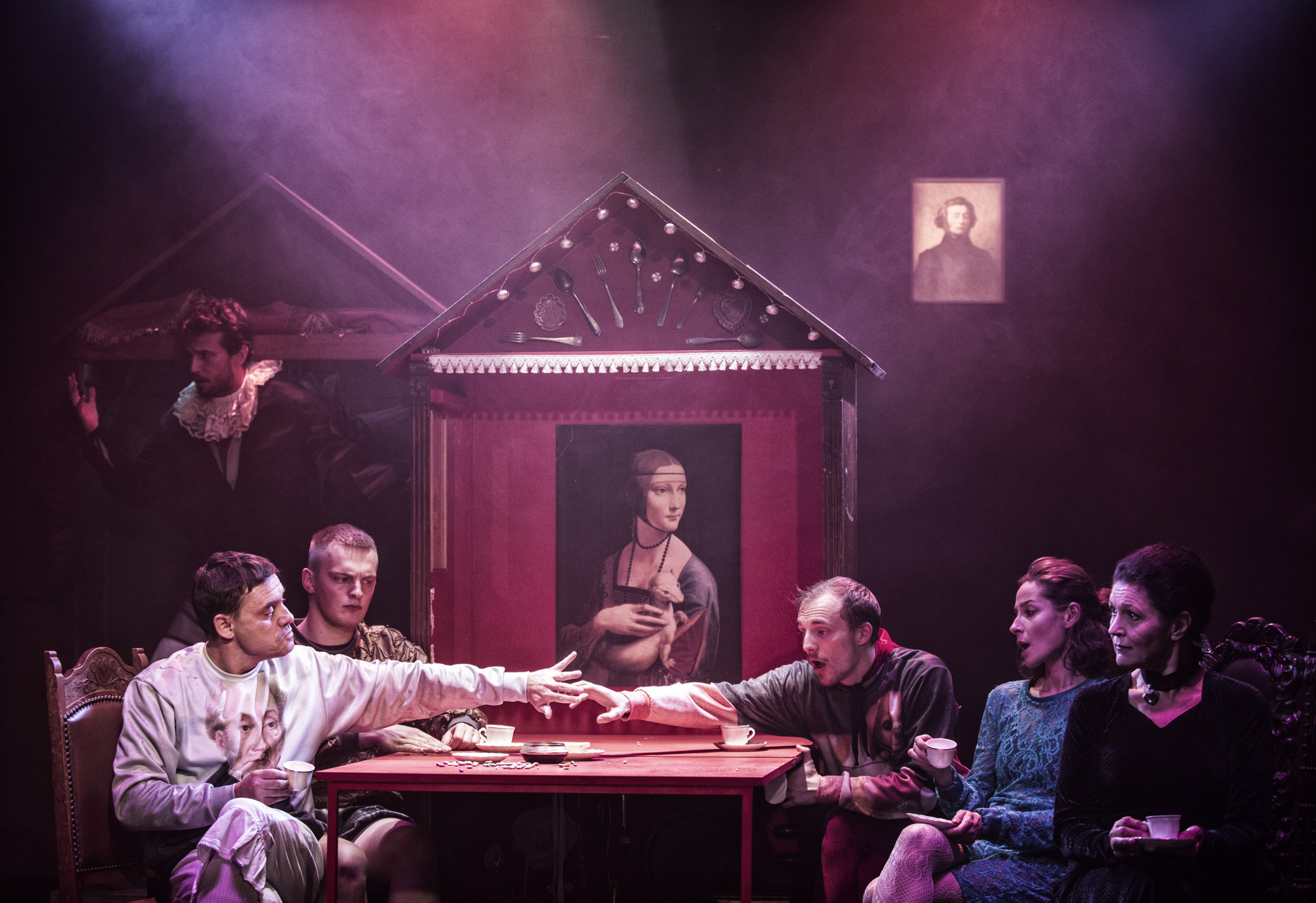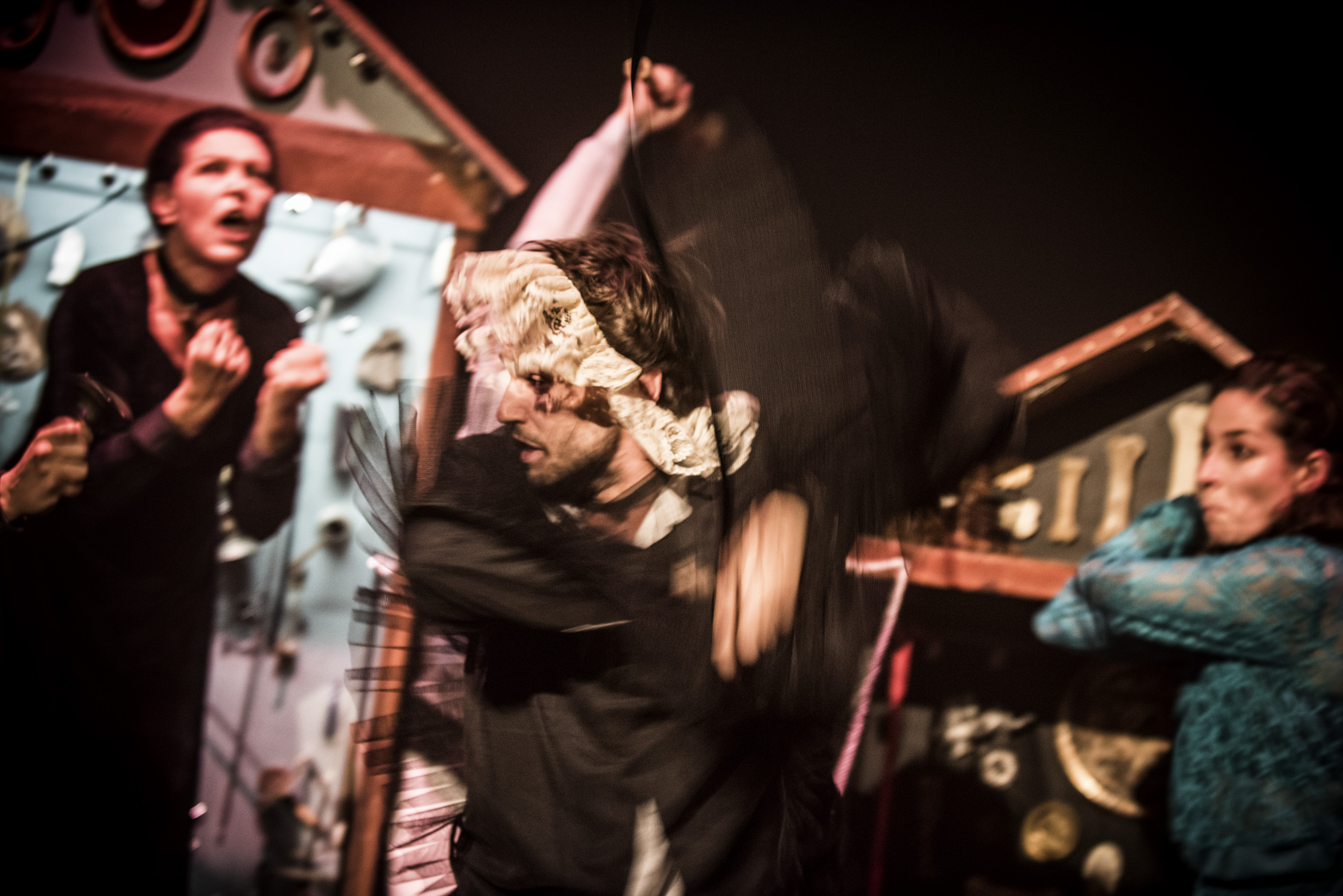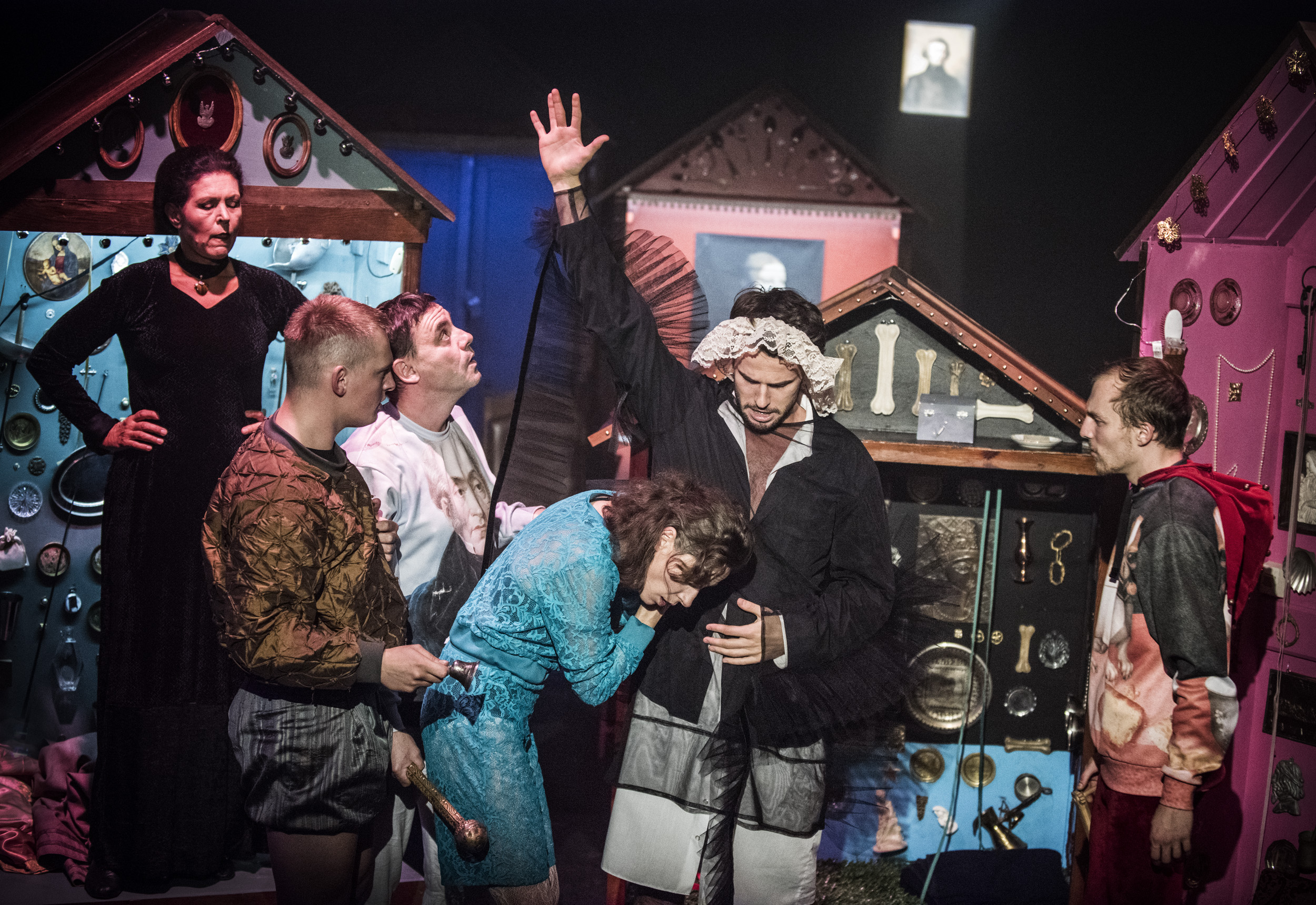Repertoire
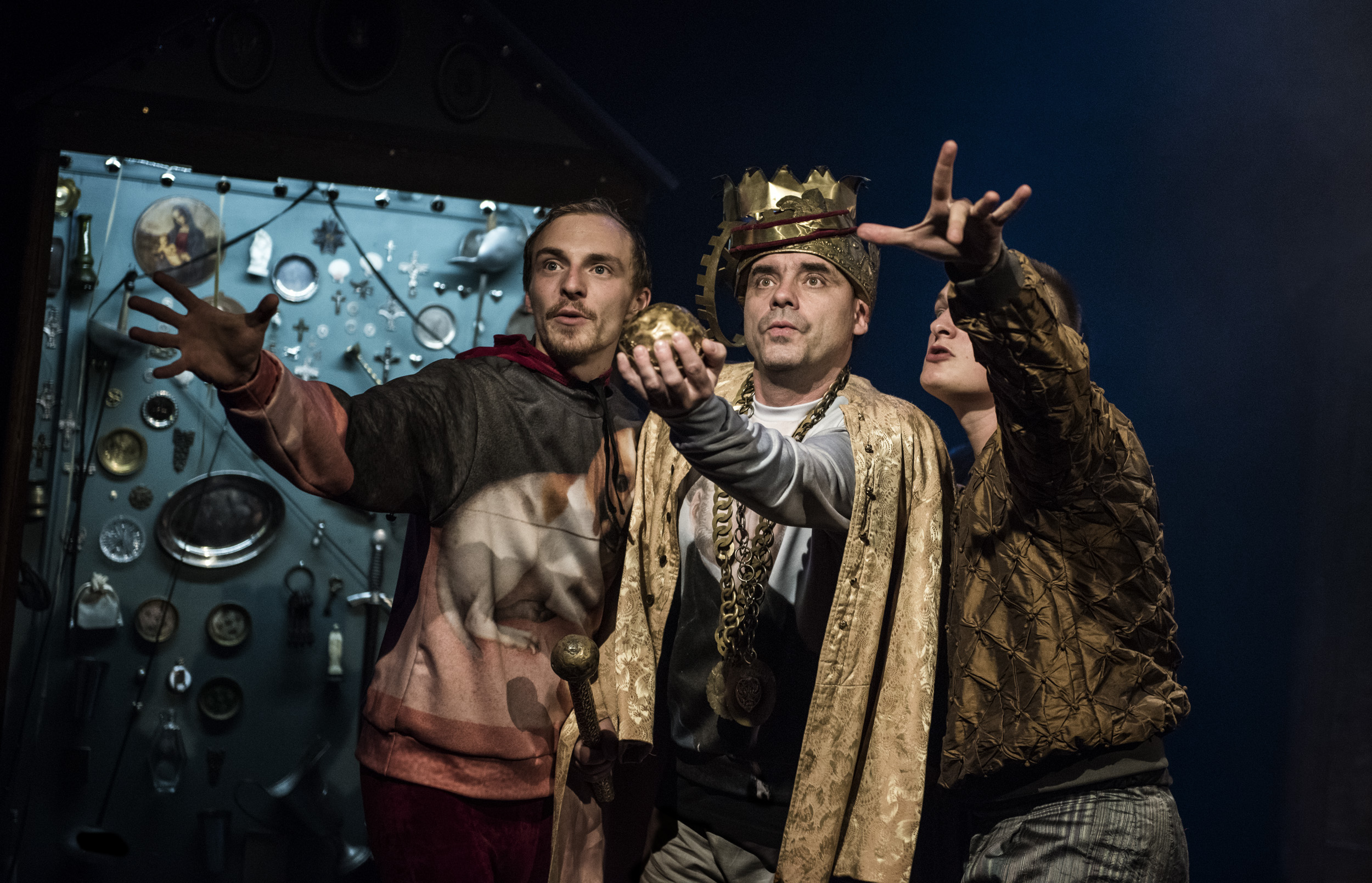
Czartoryska. Artifacts
ul. Jagiellońska 1
IZABELA: “In 1795 Poland perished! (…) That was when it first occurred to me to collect Polish memorabilia to pass on to posterity.” On the door of this museum I shall hang the words: “The Past – to the Future,” and maybe “A woman is a leader of the noble deed,” and it must say: “To praise the homeland, to instruct the foreigner, to caution the enemy.” And it wouldn’t hurt to hang on the lid of the chest: “The silent alms quash the rage of God,” because a Pole never appreciates what he gets for free. (fragment of the script by Mira Mańka and Piotr Froń)
Izabela Czartoryska (Beata Malczewska) is desperately gathering every material scrap of Polishness. Her near-obsessive collection is meant to save the homeland, done in by the nation’s egotism. Her children orbiting around her – Adam Jerzy Czartoryski (Błażej Peszek) and Maria Wirtemberska (Magda Grąziowska) – are drawn into the madness of struggling to maintain the spirit of the nation.
Is independence at all possible when our national heroes seem such small, helpless people, groping in the dark, with no will to fight? Can the scraps of objects, chaotically collected in fear of oblivion, save Independence?
To speak the disintegration of our country is, from a historical perspective, too little at present. Much as it seems insufficient to take a martyrological stance of dependence in times of freedom. (…) I am consciously avoiding the word “independence.” Self-sufficiency and distinctiveness are far more important words to me. (Mira Mańka, from the program for the play)
This play was selected from the Młodzi w Starym competition organized by the National Stary Theatre, in cooperation with the S. Wyspiański Theatre Academy in Krakow.
Does being independent meaning “having” your own country and not “being” in your country? The authors seek the roots of the lust to possess as a synonym of “Polishness” in Izabela’s passion for collecting. The victims, the first and most gravely wounded, wriggling in the web of the black widow, are her intimates—her family members. Initially they seem to uncritically accept her ideology of artifacts. Yet over time these fossilized characters, these monuments, begin to crack. The living try to speak up. Their identities are only seen through cliches, empty words and gestures, whose presentations their mother shapes. Their mother—and ours. (…). The Mother of Poland, who cannot move beyond a petrifying form of memory.
Mateusz Koczka, review blog/e-teatr
Cast
Creators
- Mira Mańka director, text
- Piotr Froń dramaturgy, text
- Wiktoria Kubat set design, costumes
- Michał Lazar music
- Paulina Góral light design
- Natalia Brajner director's assistant
- Ewa Wrześniak stage manager, prompter
